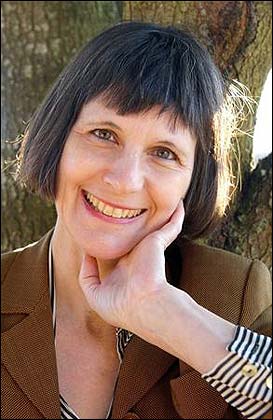
Intimate Sounds in Alternative Spots
Smaller venues flourish with classical music for the summer season
By Brett Campbell
 |
| Marcia Hadjimarkos |
Our major arts institutions — Eugene Symphony, University of Oregon, The Shedd — tend to monopolize arts coverage during the arts season, roughly September through June. Of course, readers need to know what those worthy organizations are doing, but such places tend to eclipse the efforts of smaller arts groups, which often depend on volunteers and amateurs (in the best sense of the word) who do art because they love it. The summer season gives some of the smaller venues a chance to shine, often outside the usual concert venues.
One of those plucky alternative classical institutions is Cascadia Concert Opera, which opens its third season this week with Mozart and Lorenzo Da Ponte’s delicious opera Così fan tutte (variously translated as “All Women are Like That” or “Thus Do They All” or even “The School for Lovers”), which gives a clue about what’s going on in the story. Premiered the year before Mozart died, it’s one of those Shakespearean identity-switching comedies poking fun at gender relations. Two soldiers insist their lovers will be faithful; a cynical guy begs to differ; they set up an elaborate scheme to see who’s right; confusion, duplicity, hilarity and forgiveness ensue.
But Così fan tutte is more than a silly rom-com, and some productions (such as Portland Opera’s last year) reveal more complex dimensions to this story about the uneasy reality of human feelings and motivations as opposed to conventional, socially imposed romantic illusions about them. Of course, you could just go for the incomparably beautiful music.
Cascadia Concert Opera is a good story, too. The professional participants donate their time to bring opera to non-traditional venues such as libraries, theaters, senior centers, even a piano store, and to audiences (families, students, seniors and others) who might otherwise not see it. Judging by last year’s production, there’s a good chance that the informality of the venue and the devotion of the participants will bring to Così fan tutte the kind of fresh intimacy missed in grander stage productions. It’s sung in English and, depending on the venue, presented both in a short and a long version. The long version appears at the downtown Atrium building at 2 pm Aug. 20, and at Actors Cabaret of Eugene Aug. 26-27.
Another vernal classical institution, the Eugene Symphonic Band has been bringing the classics to parks and other alternative spaces for more than half a century. This year’s free summer concert at Washburne Park features short and mostly light music from Leonard Bernstein, Shostakovich, Les Miserables and more.
Thanks to a small but devoted early music community in the area, Eugene is lucky to enjoy occasional small concerts of Baroque, Renaissance and other music that predates the Classical era. These performances are often held in the Atrium or area churches. Marcia Hadjimarkos will play music by J.S. Bach, Joseph Haydn, Satie, Schubert and Bartok on Sunday, Aug. 21, at Episcopal Church of the Resurrection. What makes this concert especially worthwhile is that the Oregon native, who’s built a career in European early music circles, will be playing a clavichord, that beautiful keyboard instrument (popular from the 14th-19th centuries) whose soft, intimate purr is entirely lost in the usual concert hall setting. The clavichord’s metal tangents produce a lovely bell-like quality unachievable on other keyboards. So this concert is a rare opportunity.
Another alternative space that regularly brings intimate music to town, Tsunami Books, hosts folk singers Frankie Armstrong and Linda Allen on Aug. 24. Starting out as a skiffle singer in pre-Beatles England, Armstrong contributed to the British folk music revival in the early ‘60s, and she still specializes in traditional rural, music hall and industrial era songs, plus her own originals and contemporary works.